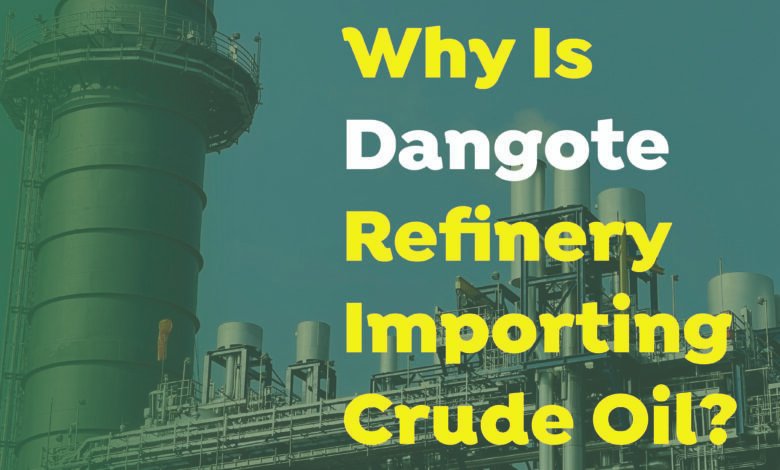
The recent reports of Dangote Refinery importing crude oil from the United States of America (USA) have left many Nigerians puzzled. Given the assumed abundance of crude oil in the country and the refinery’s widely believed purpose of halting the expensive practice of exporting Nigeria’s crude for refining abroad, this move seems counterintuitive.
Numerous analysts have attempted to explain this development. Some skeptics suggest that the refinery isn’t operational for processing and was primarily built for receiving and distributing refined products from foreign companies. However, these claims fail to fully explain the refinery’s current importation of crude oil. The underlying reason is rooted in basic economics and the firm’s primary objective: profit.
Nigeria is currently experiencing a shortfall in crude oil production due to various factors such as oil theft and declining onshore/shallow water production. This has led to a significant reduction in the country’s oil output over the past decade. Moreover, existing offshore fields with foreign operations have already allocated their output to licensing and cash-for-oil deals, leaving limited supply for domestic refineries, including the Dangote mega refinery, which was constructed with a capacity of 650,000 barrels per day.
Consequently, Dangote Refinery’s demand for crude oil exceeds Nigeria’s current production capacity, prompting the company to seek alternative supply sources. Government sources have clarified that this is a temporary situation as the new administration is collaborating with stakeholders in the oil-rich Niger Delta to boost production and renegotiate deals to increase oil production and revenue.
Furthermore, the staggering oil production capacity and vast reserves in the USA make its products more affordable and attractive to private, profit-driven companies seeking cheaper crude. In contrast, Nigeria, despite its reputation as an African oil giant, lags behind in production. With such dynamics, Dangote Refinery likely conducted a cost analysis and realized that even after factoring in shipping and logistics, importing from the USA remains economically viable. However, this situation could evolve as Nigeria, along with OPEC, responds to market competition.
Additionally, the Nigerian government’s 20% stake in the refinery, valued at $2.76 billion, enhances its position. Part of this investment is paid with oil supply, granting the government influence in the refinery’s operations and ensuring a share of its profits.





